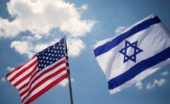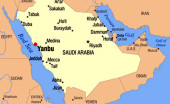Johannah Bernstein post: "eternally proud of my father’s extraordinary aeronautical engineering. legacy. here is a photo of the Canadair Water…
Middle East & Arab World: Saudi Arabia November 2025-
Written by Diana Thebaud Nicholson // November 22, 2025 // Saudi Arabia, U.S. // No comments
Middle East & Arab World: Saudi Arabia
While Saudi Arabia attempts to transform its economy and society and diversify away from dependence on oil, it has also embroiled itself in the conflict in Yemen, blockaded its neighbor Qatar, and led a crack down on dissenters such as murdered journalist Jamal Khashoggi. The conservative Kingdom has also been confronted by an increasingly hostile Iran that threatens to pull the entire region into conflict. The challenges and opportunities mean that the US-Saudi relationship remains strategically vital for US interests and for the stability of the region.
22 November
The Real Reason Trump Is Fawning Over Saudi Arabia’s Ruler
By Noah Shachtman
(NYT Opinion) … Mr. Trump made a corrosive pact with another set of moguls, and that one is already remaking global politics, wiping out jobs at home and strangling what little hope was left of avoiding a climate disaster. This one happened behind closed doors.
These moguls were leaders of the oil and gas industry, and Mr. Trump promised them he would do them so many favors that a billion dollars in donations would feel like a “deal.” The executives gave him only a fraction of the money he sought. Mr. Trump, on the other hand, has given them more than they asked for — and some now say it’s backfiring.
As expected, he scaled back regulations and encouraged more drilling — 1.3 billion more acres of coastal waters this week alone. He has also, however, taken the extraordinary step of trying to crush the industry’s green competition. He pulled the plug on the largest solar project in North America, which was on track to supply enough power for nearly two million homes. He put a $5 billion wind farm project in New York on hold, threatening thousands of jobs, and reversed himself only when the state approved a new gas pipeline. And he killed incentives for electric vehicles, sales of which had more than doubled since his first term. …
19 November
A ‘pariah’ takes the win
The crown prince gets F-35s, new security status and legitimacy in exchange for promised investment.
(WaPo editorial board) President Donald Trump’s lies about our murdered columnist, Jamal Khashoggi, overshadowed the more tangible deliverables handed to Mohammed bin Salman during the Saudi crown prince’s visit this week. On balance, Mohammed gained more from the trip than the United States, though the Trump family’s businesses stand to profit handsomely from private deals with the Saudis.
[MBS] returns home with permission to purchase 48 advanced F-35 fighter jets that many in the Pentagon, and Israel, do not trust him to have, as well as nearly 300 Abrams tanks. Trump also conferred “major non-NATO ally” status on Saudi Arabia and agreed to provide it with “world-leading” artificial intelligence technology, which hopefully won’t wind up transferred to China.
In exchange, the Saudis committed to invest nearly $1 trillion in the U.S., up from the $600 billion they announced in May. They offered no time horizon for this far-fetched figure, which is roughly the size of their annual economic output. Analysts say it will be even more difficult to achieve given lower oil prices and the kingdom’s growing budget deficit due to wasteful spending on white elephant infrastructure projects.
Saudi Arabia’s Prince Has Big Plans, but His Giant Fund Is Low on Cash
After nearly a decade of expensive, hit-and-miss investments, Mohammed bin Salman is overseeing a behind-the-scenes restructuring of the kingdom’s all-important wealth fund.
(NYT) In the Oval Office on Tuesday, Crown Prince Mohammed bin Salman told reporters, without providing details, that his nation would invest $1 trillion in America.
But a different reality is being whispered about in the power corridors of Riyadh and Wall Street: The kingdom’s vaunted Public Investment Fund, which Saudi Arabia has typically used to fulfill commitments like the one it made this week in Washington, is running low on cash for new investments.
That’s in large part because Prince Mohammed and his deputies have spent a vast portion of the nation’s bounty on projects that are in financial distress, and they are frantically trying to turn things around, according to 11 people briefed on its operations, including current employees, board members, investors and their representatives.
18 November
Trump Lauds Saudi Prince in Lavish Visit, Brushing Off Journalist’s Killing
President Trump rejected a U.S. intelligence report finding that Crown Prince Mohammed bin Salman had ordered the murder of journalist [Jamal Khashoggi]
(NYT) President Trump welcomed Crown Prince Mohammed bin Salman, Saudi Arabia’s autocratic leader, to the White House on Tuesday, hailing him as a protector of human rights and a frequent phone friend. And in a remarkable Oval Office outburst, Mr. Trump defended him against a U.S. intelligence report that he had ordered the murder of a journalist.
It was a chummy scene that underscored the president’s desire to maintain strong relations with Saudi Arabia during a tumultuous period in the Middle East. Mr. Trump’s defense of his guest obscured the crown prince’s role in cracking down on domestic dissent and in the killing and dismemberment of a Washington Post columnist, Jamal Khashoggi, in 2018.
… As he berated a reporter for asking about Mr. Khashoggi’s murder and about people who have accused the Saudi government of supporting the hijackers behind the Sept. 11 attacks, Mr. Trump brushed off the killing, appearing even more agitated about the question than his guest of honor.
Trump defends Saudi crown prince over Khashoggi killing
(WaPo) The de facto Saudi ruler was branded an outcast after the 2018 killing of Washington Post columnist Jamal Khashoggi. Now, U.S.-Saudi relations are approaching a high point.
Mohammed arrived to a grand welcome from Trump at the White House on Tuesday, greeted at the South Portico with an Army honor guard of black horses and herald trumpeters, a remarkable turnaround for the de facto ruler of Saudi Arabia who had been branded a pariah in 2018 after the CIA concluded that he had approved the killing of Khashoggi. … More recently, Trump’s son-in-law, Jared Kushner, has taken Saudi investments in his business projects, and Trump’s family business has announced numerous new business projects this year with Saudi partners who have ties to the royal family.
Later Tuesday, Mohammed returned for an elaborate dinner with tech CEOs and other business and administration leaders.
On Wednesday, there will be a U.S.-Saudi investment summit at the Kennedy Center, an effort to build business ties between Washington and Riyadh that goes beyond the investments announced during Trump’s May trip to the Middle East.
NB Adnan Mohamed Khashoggi “born in Saudi Arabia in 1935, was once the richest Arab in history. A billionaire businessman and arms dealer, he lived in unimaginable luxury. His father was Dr. D. Mohammed Khashoggi, physician to King Abdul Aziz Al Saud. Khashoggi’s sister was author Samira Khashoggi who married businessman Mohamed Al-Fayed and was the mother of Dodi Fayed. Another sister, Soheir Khashoggi, is a well-known Arab novelist (Mirage, Nadia’s Song, Mosaic). … He was a paternal uncle of murdered journalist Jamal Khashoggi.
‘Things happen’ Setting the record straight about our murdered colleague.
(WaPo Editorial Board) The United States government often advances its national interests by working with nasty people, and Saudi Arabian Crown Prince Mohammed bin Salman is one of the nastiest. It’s one thing, however regrettable, to deal reluctantly with him. President Donald Trump’s performance at the White House Tuesday was something else entirely: weak, crass and of no strategic benefit to America.
Ishaan Tharoor of the Washington Post notes that As Trump hosts MBS, Palestinian plight fades from view again
Amid a fragile ceasefire in Gaza, the challenges facing Palestinians have apparently become secondary concerns for Saudi and U.S. leaders.
17 November
As Trump and MBS meet, a longtime partnership faces new realities
Mideast and global energy issues are steadier when Washington and Riyadh act in concert.
(WaPo) Taken together, these shifts have implications that reach far beyond the kingdom. From Washington’s point of view, a strong, reforming Saudi Arabia, birthplace of Islam and home to its holiest sites, could moderate Muslim communities worldwide, erode the appeal of radicalism and provide the United States with a stable, dependable partner in a region defined by volatility. Accordingly, MBS’s visit can be expected to deliver several tangible results that will shape the next phase of U.S.-Saudi cooperation.
After two years of talks carried over from the Biden administration, both sides are nearing a formal defense cooperation agreement. Saudi Arabia’s recent defense pact with nuclear-armed Pakistan underlines that Riyadh has alliance options in a world where China and Russia are expanding their influence, so it is in Washington’s clear interest to keep Saudi Arabia firmly anchored in the Western camp.
Meanwhile, major announcements are expected in artificial intelligence, mining, rare earths and civilian nuclear energy. The Saudi Public Investment Fund has become one of the world’s most active sovereign investors, building deep partnerships with U.S. industry and finance. Saudi Arabia wants to evolve from being purely an oil exporter into also a green energy exporter and technology powerhouse, and it continues to see the United States as its partner of choice.



